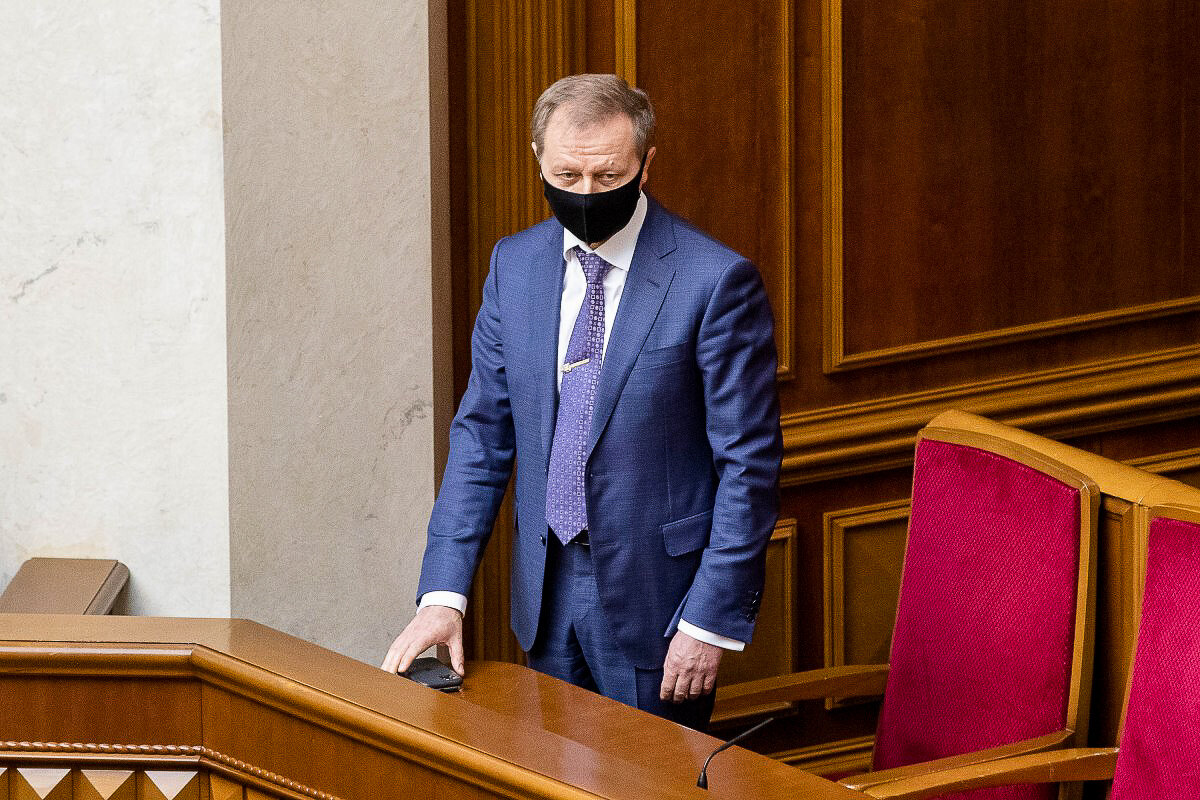The Ukrainian parliament has appointed lawyer Viktor Kichun to serve as a judge in Ukraine’s tainted Constitutional Court.
The appointment goes against the recommendations of the Council of Europe’s Venice Commission and the G7 countries. The move has killed hopes for swift reform of one of the most dubious Ukrainian institutions.
“If the judicial reform was on the agenda, they wouldn’t appoint a judge using an (old) dubious procedure,” says Mykhailo Zhernakov, head of Dejure, a legal non-profit tasked with promoting judicial reforms in Ukraine.
In October, President Volodymyr Zelensky filed a bill that would have fired all 15 Constitutional Court judges after the court deemed Ukraine’s vital anti-corruption legislation to be unconstitutional. But the parliament ignored the bill.
Read More: Internal Sabotage: Ex-chairman says Constitutional Court leads attack against Ukraine
Instead, on Feb. 18, Zelensky’s 245-member Servant of the People faction in parliament appointed the 16th judge into the unreformed court. Zero opposition lawmakers supported the appointment.
According to the Servant of the People party, the appointment of a new judge would decrease the influence of Oleksandr Tupytsky, current Constitutional Court head who’s been accused of corruption and unlawful rulings. Critics say that appointing one judge into a broken court won’t help it.
Zhernakov told the Kyiv Post that Zelensky and his party gave up on the judicial reform.
Questionable appointment
The appointment of Kichun, a constitutional law professor at the Yaroslav the Wise National Law University in Kharkiv, was supported by 241 lawmakers most of whom represent the governing Servant of the People party.
Kichun will now become a Constitutional Court judge for nine years.

The newly appointed judge of the Constitutional Court of Ukraine Viktor Kichun takes a seat during a parliament session in Kyiv on Feb. 18, 2021. (UNIAN)
The appointment of Kichun was actively supported by his friend lawmaker Fedir Venislavsky, who represents the Servant of the People party.
Venislavsky is also Zelensky’s representative in the Constitutional Court.
“This is probably the first time in history that the president’s representative in the Constitutional Court is an active lawmaker,” says Zhernakov. “The Constitutional Court can sometimes be a mediator between the president and parliament, and this is weird if they are represented by the same person.”
In November, Venislavsky told Radio Free Europe / Radio Liberty that he worked with Kichun and that he personally recommended him for the vacancy. Venislavsky said that he doesn’t see a conflict of interests because the nomination was supported by the parliament’s legal committee.
The legal committee is led by the governing Servant of the People party.
Dead reform
Furthermore, the appointment goes against the recommendations of the Venice Commission which recommended to not appoint new judges into an old unreformed institution.
In November, Zelensky asked the Venice Commission to submit a roadmap on how to reform the Constitutional Court marked by corruption and questionable rulings.
In a detailed response, the Commission, which is one of Europe’s most trusted legal advisory bodies, suggested refraining from appointing judges into the court before changing the procedure by which these judges are selected.
Read More: Venice Commission urges Ukraine to reform tainted Constitutional Court
According to the current law, out of 18 Constitutional Court vacancies, six are selected by the parliament, six by the president, and six by a judicial Concilium.
For the parliament to appoint a judge, a parliament committee must first support the decision. The procedure allows the governing party to appoint favorable judges.
The Venice Commission recommended Ukraine to establish an independent commission that would allow a more transparent selection procedure.
In January, the ambassadors of G7 countries issued a similar judicial reform roadmap which recommended to “postpone ongoing selection procedures for Constitutional Court judges until new selection rules are introduced.”
The same roadmap asked to “urgently establish a clear and transparent competitive selection process for Constitutional Court judges with the meaningful participation of internationals in vetting all candidates.”
The parliament didn’t take these recommendations into account.
“It shows the attitude of Zelensky’s lawmakers towards the recommendations of the Venice Commission,” says Zhernakov. “The Constitutional Court judge is appointed for a 9-year term, what’s the point now to change the procedure if we’ll only use it 9 years from now.”
Presidential capitulation
The appointment of Kichun marks the end of the standoff between the Constitutional Court and President Zelensky. The president doesn’t look like the winner.
In October, the Constitutional Court issued a scandalous ruling obliterating the country’s asset declaration system for officials, which threatened to undermine Ukraine’s battle with graft and derail its cooperation with the West.
As a result, over 100 corruption cases were closed.
Since then, the government has struggled to resolve the constitutional crisis.
Zelensky stated that the Constitutional Court “lost trust” and filed a bill that would have fired all 15 judges. The bill wasn’t even scheduled for a vote. In January, Zelensky recalled it.
Simultaneously, lawmakers asked 11 Constitutional Court judges, that voted against anti-corruption laws, to resign. They declined.
Read More: Constitutional Court judges live far beyond their stated means
On Dec. 28, the Prosecutor General’s Office charged Constitutional Court Head Oleksandr Tupytsky with bribing a witness to give false testimony. The charges stem from a case surrounding the unlawful seizure of a factory in Donetsk Oblast in 2006-2010 when Tupytsky was a judge in a local district court.
By law, if the head of the Constitutional Court is charged with a crime, the president can suspend him.
After pressing the charges against Tupytsky, the Prosecutor General’s Office, led by Zelensky’s loyalist Iryna Venedyktova, asked Zelensky to suspend Tupytsky. On Dec. 29, he did.
A day later, the Court issued a statement saying that Zelensky’s violates multiple articles of the Constitution.
Tupytsky’s suspension is “legally null and void because it was issued by the president of Ukraine in excess of his constitutional powers and in violation of constitutional and legal principles,” the court added.
Nothing followed.
